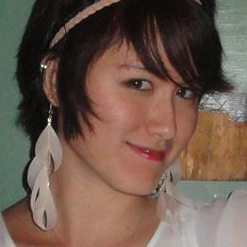
In the last post from my “Health & The Successful Life” series titled, “How I Aged Younger and How You Can Too” I delved into the topic of chronological aging vs. biological aging. We took a look at how biological age (the measure of how we look, feel, and perform) has almost nothing to do with our actual age. Not only that, but by taking certain steps, such as the ones I will be outlining in this mini-series on aging, you can actually turn back the clock on your [biological] age. No matter your age, you can benefit from this.
To kick off this mini-series, I’d like to address a health concern that every single person deals with in life. This one thing, if not kept in check, can lead to a severely depleted, worn out body and mind. It can accelerate your biological aging beyond your years. It can deplete your body of nutrients and destroy your immune system. It has been shown time and time again to affect the longevity and, more importantly, quality of life. If you haven’t guessed it by now, I’m talking about stress. Stress can do all these things and more when left unchecked.1
During my health seminars, I like to ask the participants if any of them experience stress in their lives. Naturally, all the hands go up. Stress is a natural part of life; at least it is definitely a part of mine. It comes in all shapes and forms, most of which we have absolutely no control over. From traffic to stock prices, kids’ temper tantrums to the weather, we face a lot of stress in our lives!
Most likely, if you were to look back on yesterday honestly, you would realize that your body was under a constant barrage of stress from the moment you woke up to the moment you went to bed. Stress is so much a part of our lives that we often don’t feel how stressed out we are. Stress has a very real and tangible effect on the body, and it’s not good. When I began to look at this material, it became very clear to me that being constantly exposed to stress (and the way we deal with it) is very obviously shortening the lives of many people. Stress wreaks havoc on the body and accelerates aging. This is the part about stress that most of us don’t understand.
You may or may not know this, but entire volumes have been written detailing the effects of stress on the body. A few good resources to start with are Caffeine Blues, Adrenaline Nation, and The Stress of Life. This is actually such an important point, that I will write more about it in the near future. However, in summary I want to address three different aspects of stress that deserve our attention. We’ll talk about the first one today.
- Mental Stress
- Oxidative Stress
- Artificial Stress
Mental Stress
 The body perceives an imagined threat the same as a real one. You may have remembered studying in school about the “fight or flight” reaction. The emotions that you experience when you get in a heated argument with someone can give you the same heart-pounding, energized feeling as being in a car accident or a fight. Your senses become heightened, your energy goes up, and your body is a bit shaky after the whole thing. Your body literally thought that you were in danger and responded accordingly. What about when you are stuck in traffic and late for an important meeting or work? What about when you are thinking about that person who just rubs you the wrong way? Loneliness? Deadlines? All of these, to varying degrees, are a source of stress. I think it is fair to say that everyone experiences a TREMENDOUS amount of stress in life, and we just live with it. This takes a huge toll on the body, and creating a successful life requires that we learn how to deal with life’s issues.
The body perceives an imagined threat the same as a real one. You may have remembered studying in school about the “fight or flight” reaction. The emotions that you experience when you get in a heated argument with someone can give you the same heart-pounding, energized feeling as being in a car accident or a fight. Your senses become heightened, your energy goes up, and your body is a bit shaky after the whole thing. Your body literally thought that you were in danger and responded accordingly. What about when you are stuck in traffic and late for an important meeting or work? What about when you are thinking about that person who just rubs you the wrong way? Loneliness? Deadlines? All of these, to varying degrees, are a source of stress. I think it is fair to say that everyone experiences a TREMENDOUS amount of stress in life, and we just live with it. This takes a huge toll on the body, and creating a successful life requires that we learn how to deal with life’s issues.
The importance of getting a grasp on mental stress is already widely understood and there are many productive ways to manage stress such as yoga, prayer & meditation, counseling, support from family & community, and self-help seminars. These tools, combined with a healthy sense of where one is going in life, can undoubtedly go a long way in mitigating stress. No matter what method you use, stress is ultimately more a state of mind than the result of what life throws at us. It has been said that stress, or even discontent in general, comes from either not getting what we want or getting what we don’t want. If I look at it this way, then the ball is clearly in my court. Let me use a real life example here.
I have twin boys who are four years old and a little girl who is one and a half. They are the joy of my life, but there are times when I just feel stressed to the max when dealing with them. My boys have seemingly unlimited amounts of energy and they are both very stubborn. Sometimes I will ask them to stop doing something, and one (or both) of them will say “No”. Already I feel affronted. When I ask them again, they squeal and run away. In that moment, it is easy for me to feel disrespected and ignored as a person and as a father. I can be frustrated and dwell on it for the entire day, being angry and stressed. My wife, on the other hand, has really shown me that with a little bit of love and creativity, you can redirect their focus instead of just trying to stop it. She will take the same situation and within a minute or two, all three of them will be laughing and playing with something new. The disruptive behavior is quickly forgotten. I’ve seen it happen time and time again. Both of us encounter the same situation, but we both deal with it differently. At the end of the day, who do you think is more stressed out?
Here’s another example. The other day I was driving in San Antonio and I was merging onto the freeway. I was riding a bit too close to the car in front of me and he got a little frustrated with me. How do I know that? Well, as I sped up to pass him, I got a nice finger and an angry look. There was a time in my life when that would have really bothered me. I would have felt hurt and questioned how I could be the object of that person’s anger. Fortunately, now I simply saw it for what it was: I had gotten close to another car on the freeway and got the finger for it. Let’s move on with life!!
It’s not stress that kills us, it is our reaction to it. ~ Hans Seyle
References
1. Cherniske, Stephen (2008-10-22). Caffeine Blues: Wake Up to the Hidden Dangers of America’s #1 Drug. Hachette Book Group. Kindle Edition.













Trackbacks/Pingbacks
[…] This post is the third in my mini-series on “Turning Back the Clock on Biological Aging”. If you haven’t read the first couple posts, you can read them here: “How I Aged Younger and How You Can Too” and “Turning Back the Clock on Biological Aging – Part 1”. […]
[…] ongoing research, what is clear to me is that our fate is in our hands. So far, I’ve touched on mental stress and oxidative stress. Even though there are other points that I could talk about such as exercise, […]